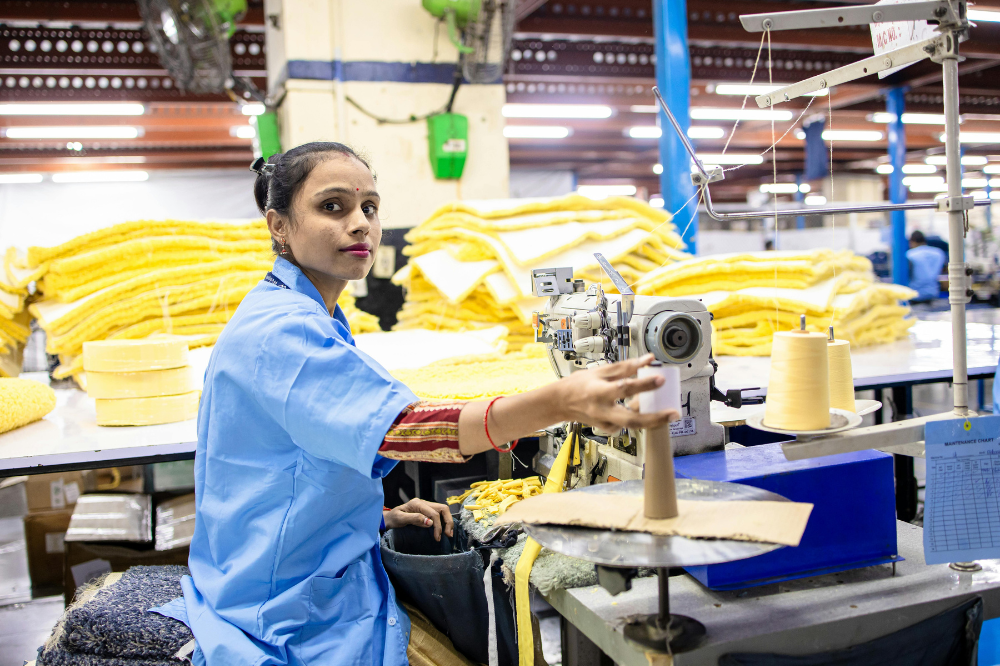Amsterdam, Hong Kong, Oakland (CA) – April 10, 2025: Solutions updated today will deliver greater transparency on credible, actionable social and labor compliance data to drive decent working conditions in global supply chains. Cascale’s Higg Facility Social & Labor Module (Higg FSLM) and the Converged Assessment Framework (CAF) from the Social and Labor Convergence Program (SLCP) address systemic labor challenges and advance fair working conditions across global supply chains, while minimizing audit fatigue for manufacturers and suppliers. The Higg FSLM is built on SLCP’s CAF, and is part of Cascale’s Higg Index suite of tools, which are exclusively available on Worldly, the leading supply chain sustainability data insights platform.
“The Higg FSLM is a critical tool underpinning Cascale’s Support Decent Work for All strategic pillar, through which we aim to champion workers’ rights, ensure fair purchasing practices, and streamline audits to foster safe and equitable workplaces,” said Jeremy Lardeau, SVP of Higg Index at Cascale. “Especially at a time when tariffs highlight the fragility of global supply chains, these tools are critically important. When companies use a common benchmark to measure and improve performance, they build efficiencies that reduce audit fatigue and, ultimately, save time and money.”
Janet Mensink, CEO of SLCP commented: “This update is part of our multi-year CAF roadmap, designed to ensure that the Converged Assessment Framework remains both relevant and scalable in an evolving regulatory environment. Version 1.7 introduces enhancements that will not only maintain high-quality reports and provide credible, actionable data, but also better align with emerging human rights due diligence standards. The new version also includes features that make it easier to identify and address social and labor issues, enabling facilities to share critical findings with brands during the assessment, rather than waiting for a final report.”
“Behind every supply chain are real people whose working conditions define the integrity of global businesses,” said Adele Stafford, Chief Growth Officer, Worldly. “With standardized assessments like the Converged Assessment Framework in the Higg Facility Social & Labor Module, companies get a clearer picture of risk — but visibility alone isn’t enough. Worldly turns that data into action, helping businesses proactively improve working conditions, protect workers’ rights, and strengthen their supply chains for the long term.”
“Adopting the CAF and Higg FSLM has been a good addition to our ecosystem,” said Khawaja Faheem Uddin, GM Systems & Compliance at Artistic Milliners Private Limited. “By streamlining our compliance processes and consolidating requirements, we’ve saved time and resources while still meeting rigorous industry standards. These tools not only support us in upholding decent work for our 17,500+ employees but also enable us to build stronger partnerships with our brand customers through greater transparency and accountability. We believe that it is a good beginning, and we should continue to improve the system collectively.”
Ray Zhang, global social compliance manager at Avery Dennison, commented, “The Higg FSLM/CAF have helped us significantly reduce audit duplication—hundreds of unnecessary audits avoided globally in the past few years. Beyond streamlining compliance, the tools enhance visibility into our supply chain, empower suppliers to manage their own social performance, and allow us to focus our resources where they matter most: building capacity and improving working conditions.”
Alongside the CAF update, SLCP is expanding verifications to 44 new countries and offering tool translations in additional languages for the self-assessment process. The CAF will now be available in Latin American Spanish, as well as already existing translations of English, Chinese, Turkish, and Vietnamese.
The Higg FSLM CAF v1.7 update enhances alignment with due diligence and governance requirements, ensuring a more standardized and structured approach to social and labor performance assessments while enhancing supply chain transparency in the consumer goods industry, making businesses more resilient and avoiding hidden risk. This structured approach enables facilities to systematically identify, address, and mitigate critical issues, reinforcing worker rights, well-being, and assess overall working conditions. Additionally, it more clearly identifies non-compliances across the data and aligns with Better Work Zero Tolerance Protocols and ILO Core Conventions, ensuring consistency with global labor standards.
The CAF and the Higg FSLM are updated annually by SLCP, Cascale, and Worldly in response to stakeholder feedback, ensuring relevance and improved functionality.













